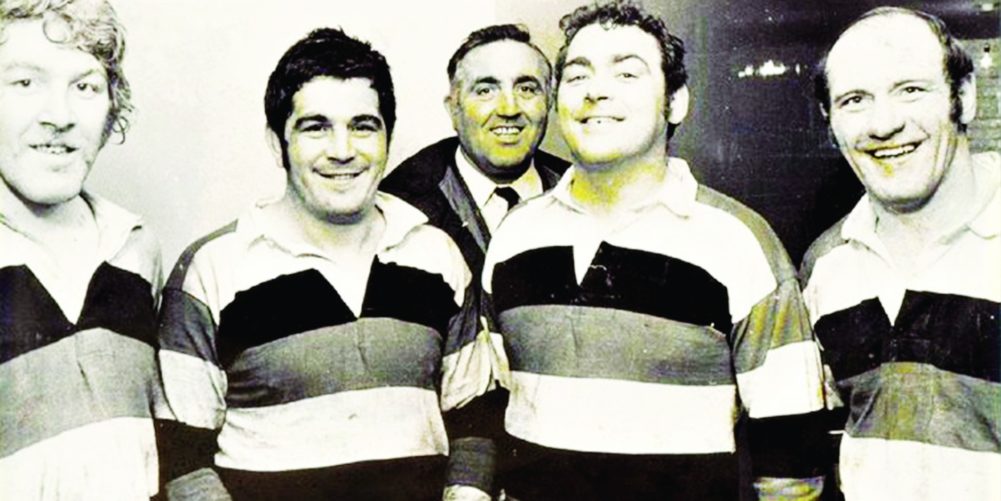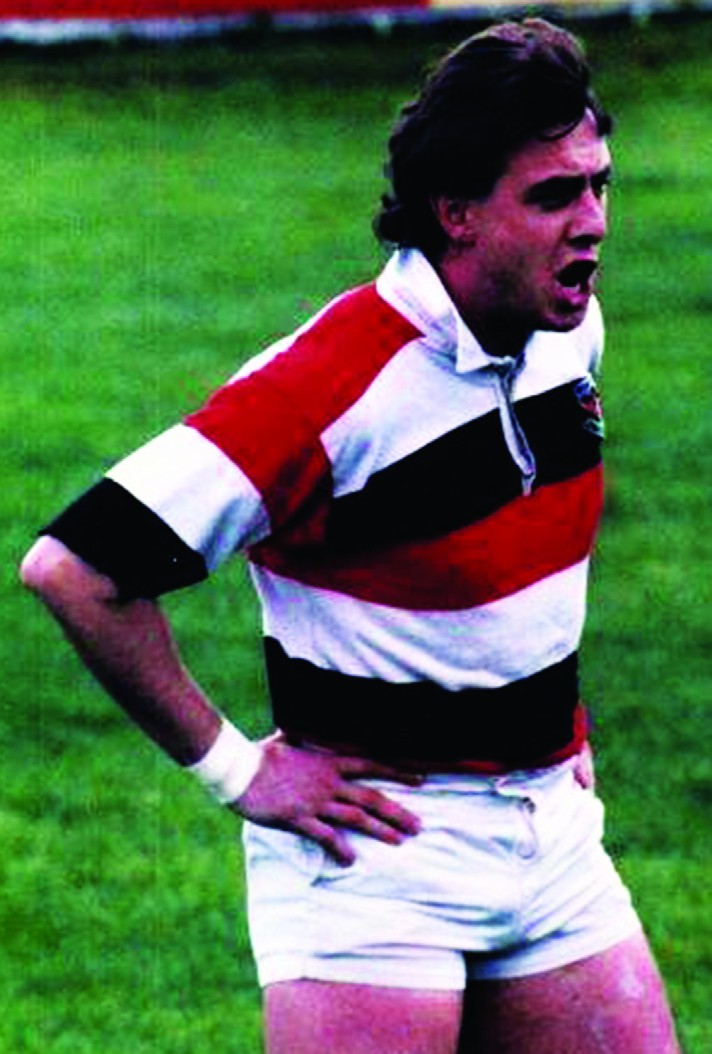BRENDAN GALLAGHER WITH HIS PERSONAL MEMORIES OF THE INIMITABLE RAY PROSSER WHO HAS DIED AT 93
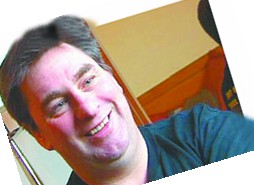
SOMEHOW I always imagined Ray Prosser would escape the Grim Reaper. It seemed ludicrous that such a man, such a force of nature, could suddenly cease to be. Last week though that moment duly arrived and Welsh Rugby – in some turmoil at present – was for once united in its outpourings of grief and head-shaking wonderment at his achievement as the Pontypool coach for 18 years.
Pross transcended rugby. It was civic pride that drove him on. His team's persona – even in their pomp – was always that of the underdogs. A poor, almost abandoned, Gwent town hanging on for grim death in a fast-changing world but – through sheer hard work, muscle and ticker – their rugby team could still take on the world.
As the designated ‘Pooler man' for the Argus and then the Echo between 1985 and 1988 I was granted a highlyprized front row seat during part of Pooler's historic pomp – those world record seasons – and speaking regularly with Pross was a rare privilege. It soon became apparent he was a much more complex individual than the larger than life cursing sergeant major he was sometimes portrayed as.
We do, however, have to address that elephant in the room. Pross, great man that he was, did unquestionably swear like a fecking trooper, from dawn to dusk, from cradle to grave although I would argue only those already wanting to be offended, took umbrage. In reality Pross was simply a master of that lost art – benign humorous swearing – the lyrical verbal punctuation of a natural orator.
And Pross actually only swore in the company of individuals he liked, rated, cared about or at the very least trusted. A vast congregation in fairness. The rest got diplomatic niceties or silence. If he was swearing at you, he was engaging with you.
For a short while when I took over as the Pontypool reporter at the Argus, Pross circled me warily. A wet-behind-the-ears English interloper with an Irish name reporting on the greatest bloody club side in all Christendom. His side, his life's work. Of course he was wary. Why hadn't the Argus sent up one of their senior rugby reporters? Why this new kid from bloody England? It was yet another insult to his beloved team and town.
He soon thawed. First there was a nod of recognition and slight surprise when I attended – come rain, hail or snow – every evening training session up at the Park to gather quotes for features and generally shoot the breeze. And, frankly, to learn. It was a sight to behold. Endless pyramid sprints up and down the pitch. Arms and legs going like pistons, the players noisily sucking in giant lungfuls of air before hissing and venting hot steam into the winter night. It was an atmospheric industrial scene, a production line, the crucible of champions.
Often the session would end with the dreaded grotto run up the hill and into the woods at Pontypool Park which reduced grown men to tears. Talk about ‘Train hard play easy', Pross was decades ahead of his time.
Then there was quick post match chats – still no swearing at this stage – for the following day's paper and God forbid that I get a single word wrong or wrongly reported the scoring sequence of a great try.
Then one evening after Pooler's bi-annual slugfest with their good friends at Berry Hill – Pooler always won the rugby easily but Berry Hill uniquely among opponents often won the punch-up – he invited me into the inner sanctum. This was the small players bar up high on the roof, or so it seemed, of Pontypool's warren like clubhouse, Elm House, in town.
“Right you xxxxxxx Irish xxxx, what are you drinking, I need a quick word with you.” I suddenly felt a bit nauseous and apprehensive.
Pontypool honours board from 1969-87
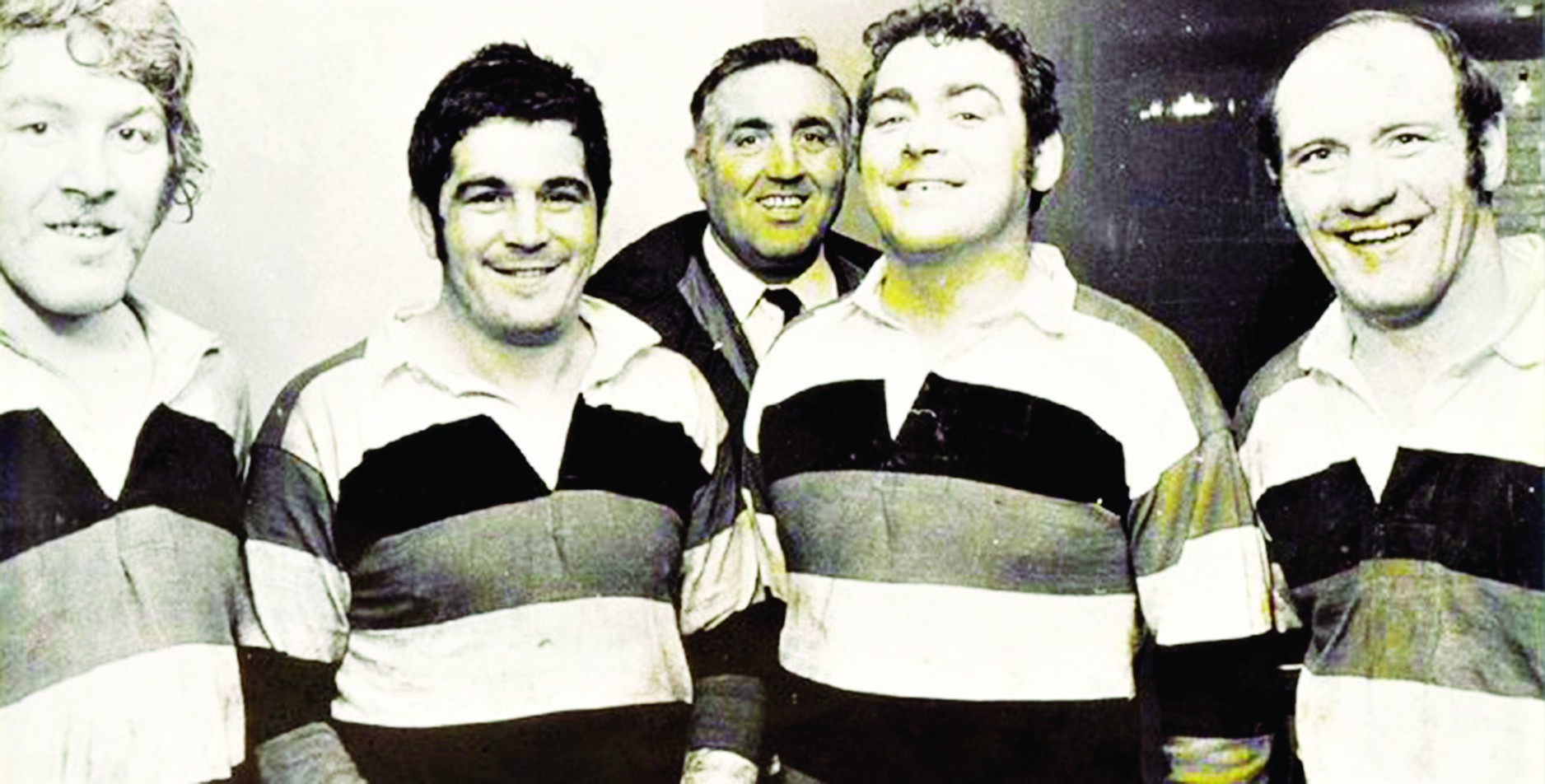
During 900 games in charge between 1969, when Pontypool were arguably the weakest senior team in Wales, and 1987, Pooler enjoyed a 71 per cent success rate winning the Welsh Merit Table on six occasions and the Welsh Cup in 1983. Prosser's Pontypool produced seven British Lions, eleven Welsh Internationals, including three Welsh captains and 18 players who represented Wales B and/or a Welsh XV in non-capped games. what are you drinking, I need a quick word with you.” I suddenly felt a bit nauseous and apprehensive.
“That bloody Perky (skipper John Perkins) thinks his team will win the quiz night next week. Well I've got bloody news for him, it ain't happening Brendan. It ain't bloody happening. I need you in my team. Are you in?”
I was in, literally and metaphorically and such access, I now realise 35 years on, was very rare and a unique opportunity to observe a legend of the game at relatively close quarters.
Away from the training ground he was much quieter than you might imagine, often lowering his voice to a whisper. He enjoyed a pint but wasn't in fact a huge drinker and was more than happy to just sit there yarning about the game with fans, rather than players, listening rather than giving out. A family man, he would be one of the first to leave, preferring an early night.
Nor was he a blood-curdling prematch ranter and raver. I used to hang around the crowded Pooler changing room just before kick-off collecting the inevitable late team changes – fireman Roger Bidgood had been caught up on a job or perhaps the Doc Peter Lewis was still operating at Newport General and you soon picked up the vibe. Pross would just go around quietly reassuring a couple of individuals, a tap on the back here, a quiet whispered word there reminding them what he expected from them.
He was modest to a fault, always deflected any praise, but he built two great teams. The Pooler of the 70s with the hugely influential Terry Cobner as his captain – his coach on the field – and the Pontypool front row of Graham Price, Bobby Windsor and Charlie Faulkner in their prime. When he took over in 1969 Pooler had just finished behind Penarth in the WRU Merit Table. Nobody finished beneath Penarth!
Then there was that second team of the 80s that won the 1983 Welsh Cup and were nigh on unbeatable for four or five years. That was the era of Eddie Butler, John Perkins, Mark Brown, Staff Jones, Steve Jones, Chris Huish, Bidgood and Lewis and others while Pricey ‘Pimplehead' when being shouted at in training despite his 12 Lions Tests – was still doing his stuff. Above all else it was the team of David Bishop – more of which anon.
Pross had three great attributes as a coach. First, he knew the value of supreme fitness. It was his main takeaway from his 1959 Lions tour to New Zealand.
The Pontypool pack in the mid-80s wasn't that much stronger, bigger or intrinsically better than other packs, they just finished every match like a bloody train. You could set your watch by it. Very quickly, despite pressing deadlines, I learnt never to start my running copy until the hour mark because the narrative always changed. A 15-15 draw became a 51-15 Pooler victory.
“It's like arm wrestling,” explains Bishop. “Initially it's dead even and then the other bloke might even start to force your arm down a little but that's no good unless he can finish the job. If you keep resisting, keep going, it's the other bloke who blinks and weakens. And when that happens it's all over very quickly. That's what we did and it was all down to Pross. He knew how much fitness counted. Strike hardest when they have got nothin left to give.”have got nothin left to give.”
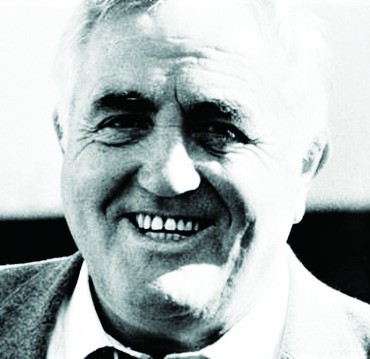
Second, Pross was a superb spoted ter of unheralded rugby talent because he knew exactly how he wanted his team to play and therefore exactly what he was looking for.Second, Pross was a superb spoted ter of unheralded rugby talent because he knew exactly how he wanted his team to play and therefore exactly what he was looking for.
He would travel far and wide checking out plyers, often at junior clubs – Blaenavon, Garndiffaith, Cimla, Brynmwar, Newport Saracens, Blaina, Cwmbran,Talywain, Blackwood, Ynysbwyl – as well as the less fashionable senior Gwent clubs like Cross Keys, Ebbw Vale and Tredegar. When you saw Pross and his trusted assistant Ivor Taylor huddled together on a windswept touchline you could be sure some body was being very closely assessed.He would travel far and wide checking out plyers, often at junior clubs – Blaenavon, Garndiffaith, Cimla, Brynmwar, Newport Saracens, Blaina, Cwmbran,Talywain, Blackwood, Ynysbwyl – as well as the less fashionable senior Gwent clubs like Cross Keys, Ebbw Vale and Tredegar. When you saw Pross and his trusted assistant Ivor Taylor huddled together on a windswept touchline you could be sure some body was being very closely assessed.
Pross signed Bishop after watching the young Ebbw Vale scrum-half take on Pooler single handed in a 47-9 defeat at Eugene Cross Park.
“Pross was simply a master of that lost art -benign humorous swearing”
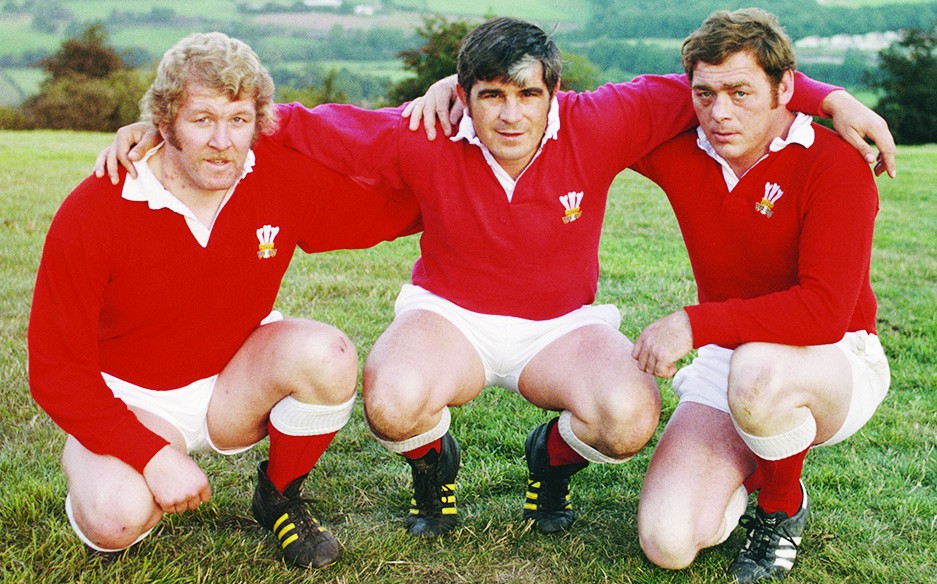
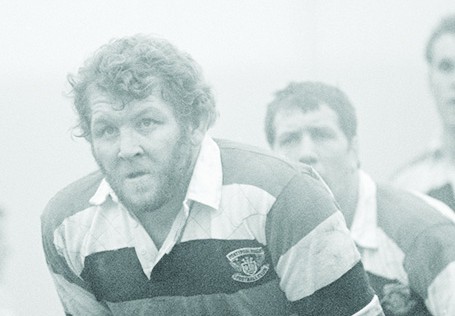
“You had three legs to every other bastard's two,” he told Bishop afterwards. “Come down to Pooler and play for us.” A few weeks later he did.
And finally there was his loyalty to players, not least to Bishop. The Bish was the only player I can remember Pross signing who didn't really fit a pre-ordained mould.And finally there was his loyalty to players, not least to Bishop. The Bish was the only player I can remember Pross signing who didn't really fit a pre-ordained mould.
Pross was so taken with Bishop's talent that he couldn't help himself. Occasionally he pleaded with Bish to comply more closely to the Pooler template, but genius does what it must and when Bish went off message Pross just shrugged his shoulders like a bemused but adoring parent. He stood by Bishop throughout the 1985 Chris Jarman affair when the scrum-half landed the shortest of short arm jabs to Jarman's face and knocked the big Newbridge lock out cold. Nobody on the field knew who was responsiblePross was so taken with Bishop's talent that he couldn't help himself. Occasionally he pleaded with Bish to comply more closely to the Pooler template, but genius does what it must and when Bish went off message Pross just shrugged his shoulders like a bemused but adoring parent. He stood by Bishop throughout the 1985 Chris Jarman affair when the scrum-half landed the shortest of short arm jabs to Jarman's face and knocked the big Newbridge lock out cold. Nobody on the field knew who was responsiblebut some in the grandstand got a good view and Jarman and his father started criminal proceedings.
After that match, Prosser's main anger was directed at his pack. Pooler firmly believed Jarman had kicked their fly-half Mike Goldsworthy in the head earlier in the game and Prosser was incredulous that his forwards hadn't ‘sorted it out' in the old time honoured way.
The incident quickly escalated into a cause celebre and Pross sensed a determined settling of scores by the rugby establishment who had begrudged Pooler's success and loathed their ruthless approach.
You saw scores of such incidents in Wales during this period, as it often seemed like the wild west. If you got caught and sent off it was a two or four-week ban and if you didn't there was no sanction and you lived to fight another day.
Bishop got barred from the Wales squad for 14 months pending the criminal hearing and then banned from all sport – not just rugby – for a further ten months when he received a suspended gaol sentence for common assault. The sentence was overturned the following day on appeal in the High Court in London but the ten-month WRU ban remained.
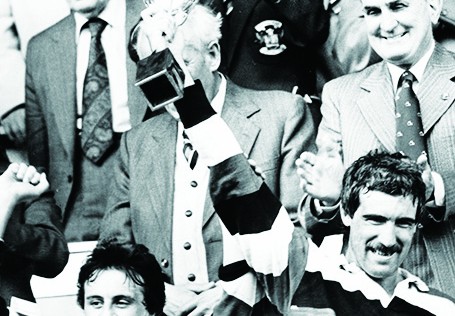
“Let he who is without sin cast the first pebble… and I'm telling you I haven't seen a bloody ripple yet,” was Prosser's default quote on the situation. When Bishop, disillusioned with Union, turned professional with Hull KR he wanted to slip Pross a few quid. Instead his coach asked if he could have a colour TV.
“It was a huge thing, the biggest I could find,” recalls Bishop, “and to this day I can see him throwing it up on his shoulder like a sack of potatoes as pleased as pie.
“I can't begin to do the man justice. Pross let me do my own thing. He backed me warts and all. He knew there was plenty of good there if you gave me a chance.
“He put his arm around me and told me to fly and at a structured club like Pooler that was some display of trust.
“It developed into a father-son type relationship. He had three daughters – no sons – and I also think the young tearaway me reminded him a bit of the young Pross!
“He indulged me, no question. One pre-season he let me off the grotto run. He had told me there was a crock of gold at the top and I told him that for me there was only a bucket of spew and that I was a thoroughbred, a Derby runner, not a bloody Grand National stayer.
“He sort of accepted that. To be fair he also knew that year-round I would be training in the boxing gym, that I played Sevens all summer, that I hardly ever missed a match and that I couldn't be much fitter. And I did the hard yards in the pyramid sprints.
“I've been completely devastated by the news of his death, he was family to me and I've cried buckets all week. I howled when talking to Bobby, I sobbed when I facetimed Chris Huish down in Sydney, I wept watching Eddie Butler's tribute on the TV. I started crying again when Lyndon Faulkner emailed me with some nice words from California. There will be some laughs though when we finally all get together. It's the laughs I remember most.”
The last time I saw Pross was about ten years ago when I diverted to Pontypool on the way home from a Wales Press conference in Cardiff. I sat in the old stand at the Park, in the seat from which I bellowed tens of thousands of words down the telephone. By some strange alchemy it always went pin-drop silent in the stand on the few occasions I was offering some mild criticism of Pooler. Pross would turn around and scowl before laughing uproariously. Then I remembered there was a cafe in Pontypool where he often met up with fellow old age pensioners for tea and toast and a yarn.
Yes, he was there, raising the spirits and energising his mates. This was his new team now. The big man was still in charge.
Pross believed implicitly in his town and community. It was Pontypool and, at a push, Blaenavon just up the road, against the rest of the world and his incredible Pontypool side was his gift to the people he loved.
I asked him that day what went wrong after he stood down. There was one great season with Bobby Windsor as coach – the season Mark Ring joined – but a slow decline developed into something much more terminal with the onset of professionalism. Happily the club has begun to regenerate a little in more recent seasons
“You have to work for everything in life and I think we stopped working. We got used to success and assumed that would always be the way of things. Well, it bloody well ain't. We paid a heavy price.”
I decided against mentioning the unspoken truth; he would not have appreciated it. There was only one Ray Prosser and he was an impossible act to follow.

